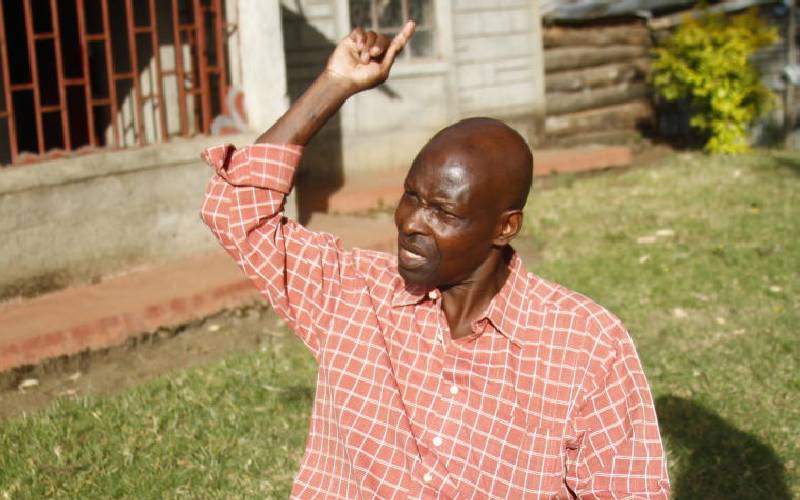×
The Standard e-Paper
Fearless, Trusted News

James Obonyo who had been detained in a private hospital in Nakuru after he failed to offset a medical bill. [Photo, Standard]
Locked in closed isolated structure drills, subjected to 24 security surveillance and starved is what describes the lives of patients who fail to clear medical bills in private hospitals.